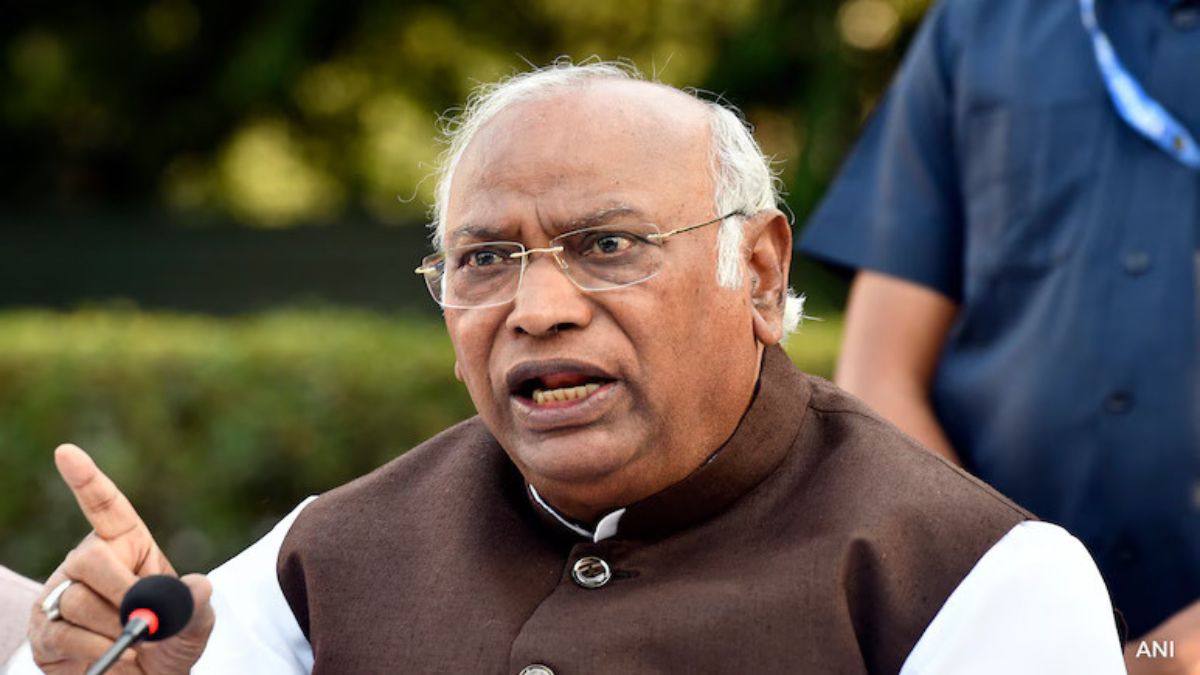 |
|
The Rajya Sabha, India's upper house of Parliament, witnessed a heated exchange on Monday during the debate on the Motion of Thanks to the President's address. Congress President Mallikarjun Kharge, while addressing the depreciation of the Indian rupee, found himself the target of an interruption by BJP MP Neeraj Shekhar, son of former Prime Minister Chandra Shekhar. This seemingly minor disruption escalated into a significant parliamentary incident, revealing deep-seated tensions between the ruling Bharatiya Janata Party (BJP) and the opposition Indian National Congress (INC). Kharge's response, a sharp rebuke referencing his past relationship with Shekhar's father, ignited a firestorm within the chamber.
Kharge's retort, “Tera baap ka bhi main aisa sathi tha. Tu kya baat karta hai? Tujhko lekar ghuma. Chup, chup, chup baith,” (I was your father’s companion. What are you talking about? I took you around. Shut up and sit down.), was a powerful and emotionally charged response to the interruption. While expressing a personal connection with the elder Shekhar, the bluntness of the statement and the direct address undoubtedly contributed to the uproar that followed. This outburst forced Rajya Sabha Chairman Jagdeep Dhankhar to intervene, reminding members of Chandra Shekhar's significant legacy and urging Kharge to retract his remarks. Dhankhar's intervention highlights the delicate balance between maintaining order and allowing for robust debate within the parliamentary setting. The Chairman's appeal for respect towards the former Prime Minister underscores the gravity of the situation and the importance of maintaining decorum in the House.
Kharge, while clarifying his comments, emphasized his deep respect for Chandra Shekhar, even stating that they had been arrested together. This personal history, however, did little to diffuse the tension. The incident brings to light the complexities of navigating personal relationships and political discourse within the highly charged atmosphere of Parliament. The use of familial references, particularly “apke baap” (your father), which Dhankhar correctly pointed out as inappropriate for parliamentary decorum, further exacerbated the situation. Kharge's subsequent defense, highlighting the BJP's frequent use of insulting language towards political figures, particularly the derogatory remarks aimed at former Prime Minister Manmohan Singh, such as “Mauni Baba,” framed the incident within a larger context of political antagonism.
The incident, while seemingly a singular event, provides a valuable lens through which to examine the broader political climate in India. The heated exchange between Kharge and Shekhar encapsulates the escalating tensions between the ruling BJP and the opposition Congress. This clash of ideologies and the often-aggressive rhetoric exchanged between members of opposing parties serve as a stark reminder of the challenges facing India's political system. The incident reflects a worrying trend of declining decorum and escalating verbal attacks within parliamentary settings, raising questions about the effectiveness of established mechanisms for maintaining order and fostering constructive dialogue.
Furthermore, the incident highlights the complexities of navigating personal relationships within the highly charged environment of Indian politics. Kharge’s justification for his outburst, rooted in a personal history with Chandra Shekhar, underscores how personal connections can be weaponized or inadvertently invoked within the political sphere. While personal history might explain the emotional outburst, it doesn't excuse the breach of parliamentary etiquette. The incident serves as a cautionary tale, demonstrating the need for a more nuanced approach to political discourse that respects both personal relationships and the rules and decorum of Parliament. The incident also underscores the limitations of procedural mechanisms in controlling such instances of political heat, and emphasizes the need for a more respectful and constructive political engagement in the future.
The incident’s aftermath is likely to further fuel the existing political divide, with both the BJP and Congress likely to use the incident to bolster their respective narratives. The BJP might emphasize the lack of decorum shown by the opposition, while the Congress might highlight the aggressive political climate cultivated by the ruling party. This polarization is further exacerbated by the increasingly partisan media environment, which often amplifies such events and frames them through a partisan lens. The incident, therefore, serves as a case study in how personal history, political rivalries, and the media landscape can coalesce to create significant political moments and fuel political tensions.
Ultimately, the incident involving Kharge and Shekhar serves as a sobering reminder of the challenges inherent in maintaining a healthy, productive, and respectful political environment. It highlights the need for greater self-regulation among politicians and a renewed commitment to parliamentary decorum. The incident also underscores the importance of fostering a culture of mutual respect and constructive dialogue, essential for navigating the complexities of India's vibrant yet often contentious political landscape. The immediate aftermath of the incident, likely involving internal party discussions and potentially formal apologies, will only partially address the larger concern of the increasing tension and deterioration of decorum within Indian parliamentary discourse.
Source: ‘Tera baap ka bhi main…’: Kharge blasts on BJP MP in Rajya Sabha for interrupting him
